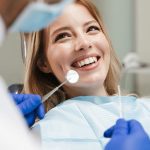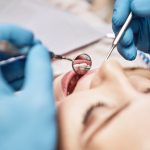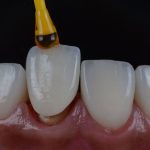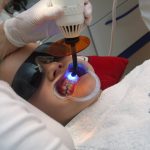Brushing Teeth: How Long Should You Wait Before Eating?
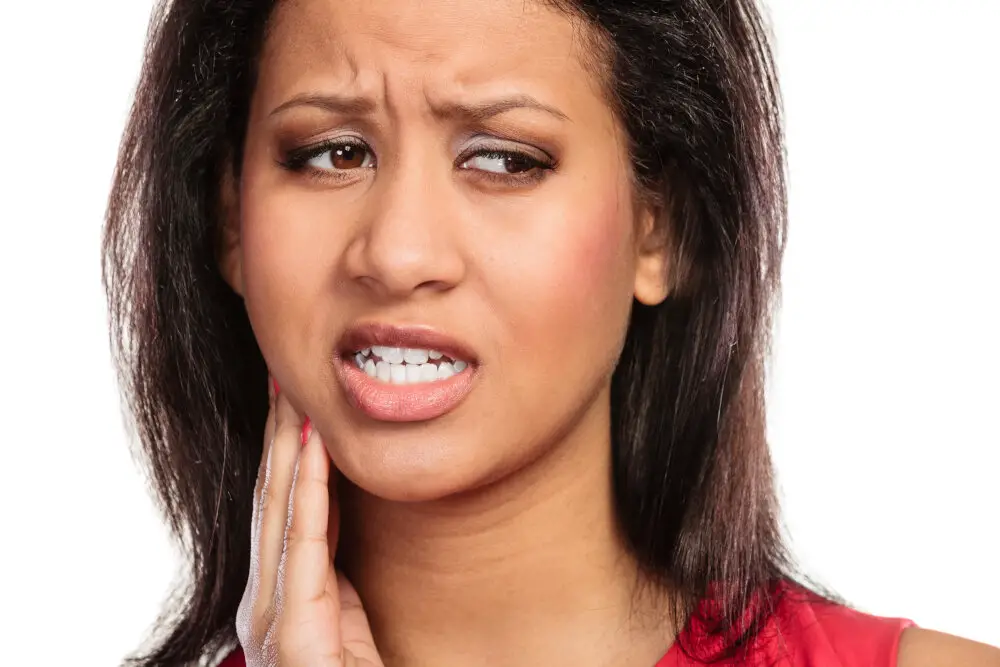
Brushing teeth is an essential part of our daily hygiene routine, and we all know it. However, when it comes to the question of how long should we wait before eating after brushing our teeth, there seems to be a lot of confusion. Some believe that it is best to brush your teeth before eating to prevent the formation of plaque and cavities, while others argue that it is better to wait for some time before consuming anything after brushing to avoid damaging the enamel. So, what is the right answer? Let’s explore this topic in more detail and find out. The debate on how long one should wait before eating after brushing their teeth might seem trivial, but it is essential to understand that the timing can significantly impact our dental health. Brushing your teeth too soon after eating can lead to the erosion of the enamel, while waiting too long can result in the accumulation of harmful bacteria in the mouth. Therefore, it is crucial to strike a balance and determine the optimal time for brushing and eating to achieve optimal oral hygiene. In the following paragraphs, we will examine the different factors that influence the waiting time and how to maintain healthy teeth and gums.
Brushing teeth is an essential part of oral hygiene, and it plays a crucial role in maintaining dental health. The practice of brushing teeth helps to remove food particles, plaque, and bacteria that accumulate on the teeth and gums. This, in turn, prevents the formation of cavities, gum disease, and bad breath. Brushing teeth twice a day, for two minutes each time, is recommended by dentists. It is also important to use a fluoride toothpaste to strengthen the tooth enamel. Neglecting to brush regularly can lead to serious dental problems, including tooth decay, gum disease, and even tooth loss. Therefore, it is crucial to make brushing teeth a part of your daily routine to ensure good oral health.
Maintaining good oral hygiene is crucial for overall health, and brushing teeth is an essential component of such hygiene. While most people recognize the importance of brushing, many wonder how long they should wait before eating after brushing their teeth. The answer to this question is not straightforward, as it depends on a variety of factors such as the type of toothpaste used, the frequency of brushing, and the individual’s oral health. In general, dentists recommend waiting at least 30 minutes after brushing before eating to allow the fluoride in toothpaste to strengthen the enamel and protect teeth from decay. However, people who have eaten acidic or sugary foods should wait longer to avoid damaging their teeth. Ultimately, the best approach is to consult with a dentist to determine the specific recommendations for your oral health needs.
The Importance of Brushing Teeth
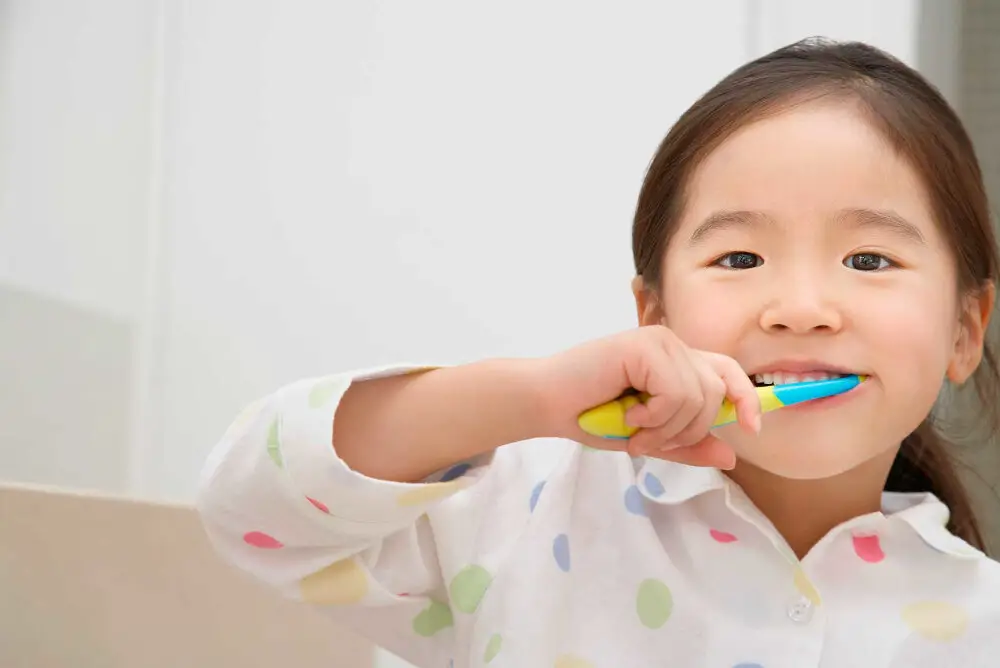
Oral hygiene is an essential part of maintaining good health. Brushing teeth should be an integral part of everyone’s daily routine. It is more than just a way to keep your breath fresh; it is a way to keep your teeth and gums healthy. Brushing teeth helps to remove plaque and bacteria that can build up on teeth and cause cavities, gum disease, and bad breath. It also helps to stimulate saliva production, which helps to neutralize the acid in our mouths that can erode tooth enamel. Brushing teeth twice a day, for at least two minutes each time, is recommended by dentists to maintain good oral hygiene. In addition to brushing teeth, it is also essential to floss regularly and use mouthwash. Flossing helps to remove food particles and plaque from between teeth and along the gum line, where a toothbrush cannot reach. Mouthwash helps to kill bacteria that can cause bad breath and gum disease. It is important to note that brushing teeth should be done before eating, not after. This is because brushing teeth after eating can actually damage tooth enamel, especially if the food or drink consumed is acidic. Waiting at least 30 minutes after eating before brushing teeth is recommended to allow saliva to neutralize the acid in our mouths.
Brushing teeth is an essential part of maintaining good oral hygiene. It helps to remove plaque, bacteria, and food particles from the teeth and gums, preventing tooth decay, gum disease, and bad breath. Brushing also stimulates the production of saliva, which neutralizes acids in the mouth and helps to remineralize tooth enamel. In addition to these benefits, regular brushing can also improve overall health by reducing the risk of heart disease, stroke, and diabetes. It is recommended to brush teeth twice a day for at least two minutes each time, using a fluoride toothpaste and a soft-bristled brush, to reap the full benefits of this simple yet effective oral care routine.
Brushing teeth is an essential part of maintaining good oral hygiene. It helps in preventing dental problems by removing plaque and bacteria from the surface of teeth and gums. Plaque is a sticky film that forms on teeth and contains harmful bacteria that can cause tooth decay and gum disease. Brushing teeth twice a day for at least two minutes each time can help to remove this plaque and prevent it from building up. It also helps to freshen breath and remove any food particles that may be stuck between teeth. Therefore, regular brushing is crucial in keeping your teeth and gums healthy and free from dental problems.
What Happens When You Eat After Brushing Your Teeth?
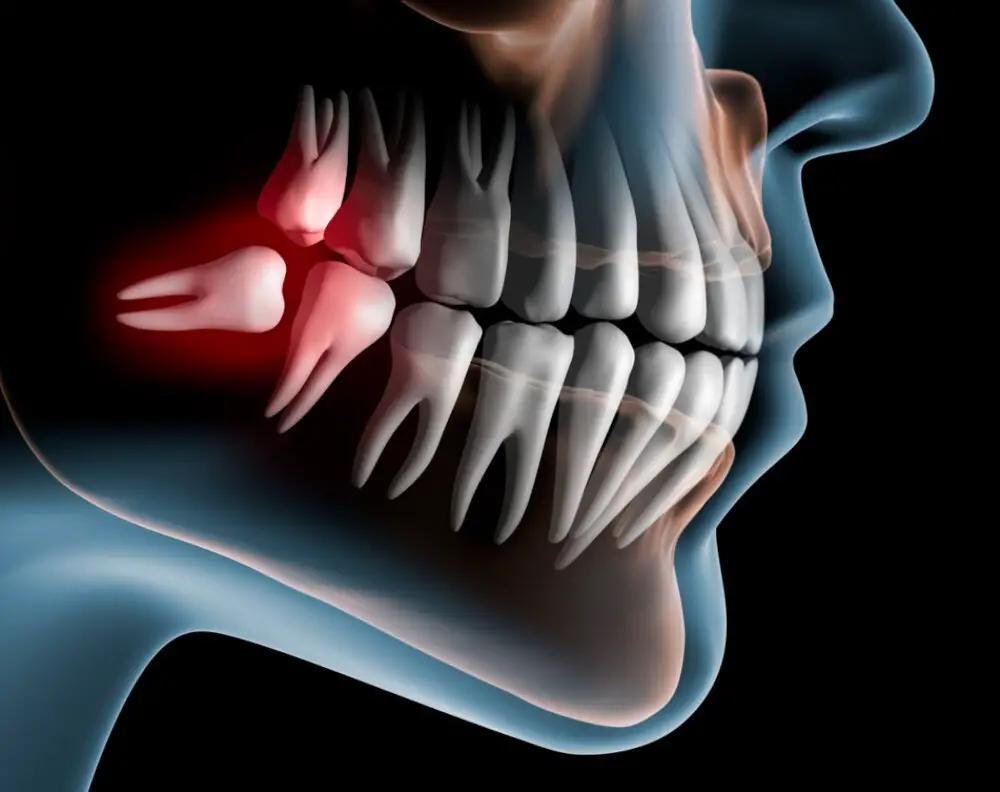
Eating after brushing your teeth can leave a terrible taste in your mouth. This is because toothpaste contains a foaming agent called sodium lauryl sulfate (SLS), which makes the toothpaste foam and spread easily. When you brush your teeth, the SLS in the toothpaste can create a film on your tongue, which can affect your sense of taste and make food taste different. Additionally, the fluoride in toothpaste also creates a temporary protective layer on your teeth, which can prevent food from being absorbed properly. This can lead to a reduced nutrient absorption and may affect your overall health. Furthermore, eating immediately after brushing your teeth can also damage your tooth enamel. Brushing your teeth removes the protective layer of saliva that coats your teeth. This layer helps to neutralize the acids in food and drinks that can erode your tooth enamel. When you eat after brushing your teeth, the acids in food and drinks can react with your tooth enamel directly, which can cause tooth decay over time. Therefore, it is important to wait at least 30 minutes after brushing your teeth before eating or drinking anything to allow your saliva to restore the natural protective layer on your teeth.
The food we consume has a significant impact on our dental health. Sugary and acidic foods can damage the enamel on our teeth, leading to decay and cavities. When we eat, bacteria in our mouth feed on the sugar and produce acid that attacks the tooth’s surface, causing erosion. Additionally, hard and crunchy foods can cause physical damage to the teeth, such as chips or cracks. On the other hand, foods high in calcium and phosphates, like milk or cheese, can help strengthen tooth enamel and prevent decay. It is essential to maintain a balanced and healthy diet to promote good oral health and minimize the risk of dental problems.
Brushing your teeth is an essential part of maintaining good oral hygiene. However, eating immediately after brushing your teeth can have negative effects on your dental health. When we brush our teeth, we remove the protective layer of saliva and expose the enamel to acids in the food we eat. Eating immediately after brushing can increase the risk of acid erosion, which can lead to tooth sensitivity and decay. Additionally, some toothpaste contains fluoride, which helps strengthen tooth enamel. Eating immediately after brushing can wash away the fluoride, reducing its effectiveness. To protect your dental health, it is recommended to wait at least 30 minutes after brushing before eating, allowing the saliva to rebuild the protective layer and the fluoride to fully absorb into the enamel.
How Long Should You Wait Before Eating After Brushing Your Teeth?
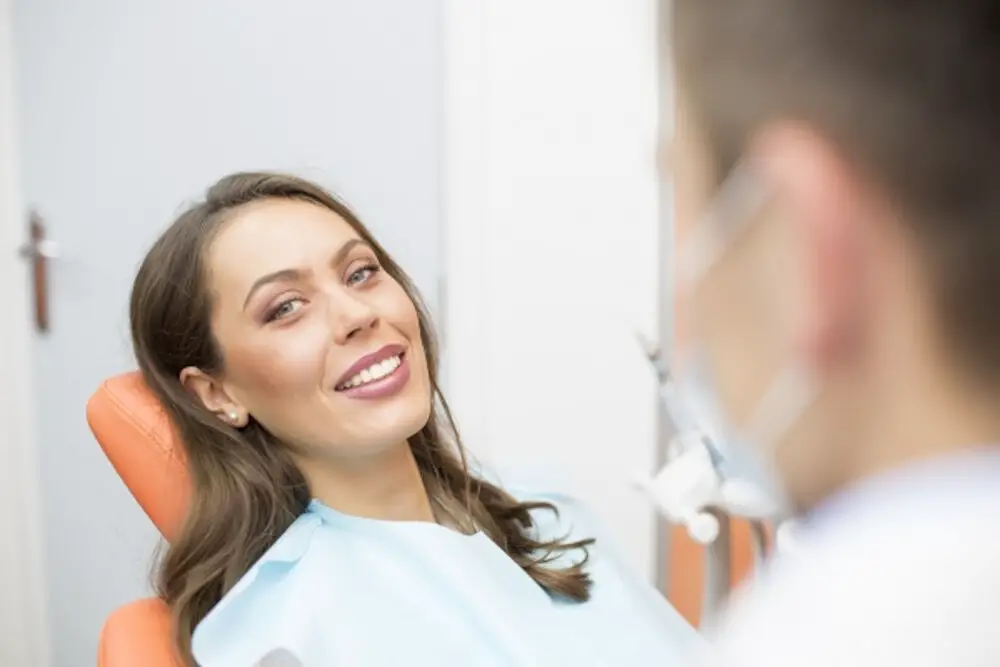
It is essential to maintain proper oral hygiene to keep your teeth and gums healthy. Brushing your teeth twice a day is a crucial step in maintaining good oral hygiene. However, many people are unsure of how long they should wait before eating after brushing their teeth. The general recommendation is to wait for at least 30 minutes before consuming any food or drink after brushing your teeth. This time allows the fluoride in toothpaste to work effectively and protect your teeth from decay. The reason why you should wait for 30 minutes before eating or drinking is that toothpaste contains fluoride, which is a mineral that strengthens your teeth and protects them from decay. Fluoride works by forming a protective layer on your teeth, which helps to prevent the growth of harmful bacteria that can cause cavities. However, if you eat or drink immediately after brushing your teeth, you can wash away the fluoride layer and reduce its effectiveness. Therefore, it is recommended to wait for at least 30 minutes after brushing your teeth before consuming any food or drink to ensure that the fluoride can work effectively and protect your teeth.
The ideal time to wait before eating after brushing your teeth is at least 30 minutes. This is because toothpaste contains fluoride, which helps to strengthen the enamel on your teeth. However, if you eat immediately after brushing, the acidity in certain foods can weaken the enamel, making it more susceptible to damage. Waiting for a minimum of 30 minutes allows the fluoride to fully absorb into your teeth, creating a protective layer that helps to prevent decay. Additionally, waiting to eat after brushing can also help to reduce the amount of bacteria in your mouth, which can lead to improved overall oral health. So, if you want to get the most out of your brushing routine, it’s best to wait at least 30 minutes before eating.
The waiting time after brushing teeth before eating can be affected by several factors. Firstly, the type of toothpaste used can influence the waiting time. Toothpaste containing fluoride requires a longer waiting time than non-fluoride toothpaste. Secondly, the method of brushing can also affect the waiting time. Brushing too hard or for too long can cause gum irritation, thus requiring a longer waiting time. Thirdly, the type of food being consumed can affect the waiting time. Foods and drinks that are acidic or high in sugar can soften the tooth enamel, making it more vulnerable to damage. Finally, personal preference and dental health history can also play a role in determining the waiting time. It is important to consider these factors and consult with a dental professional to ensure the best oral health practices.
Tips for Maintaining Good Dental Health
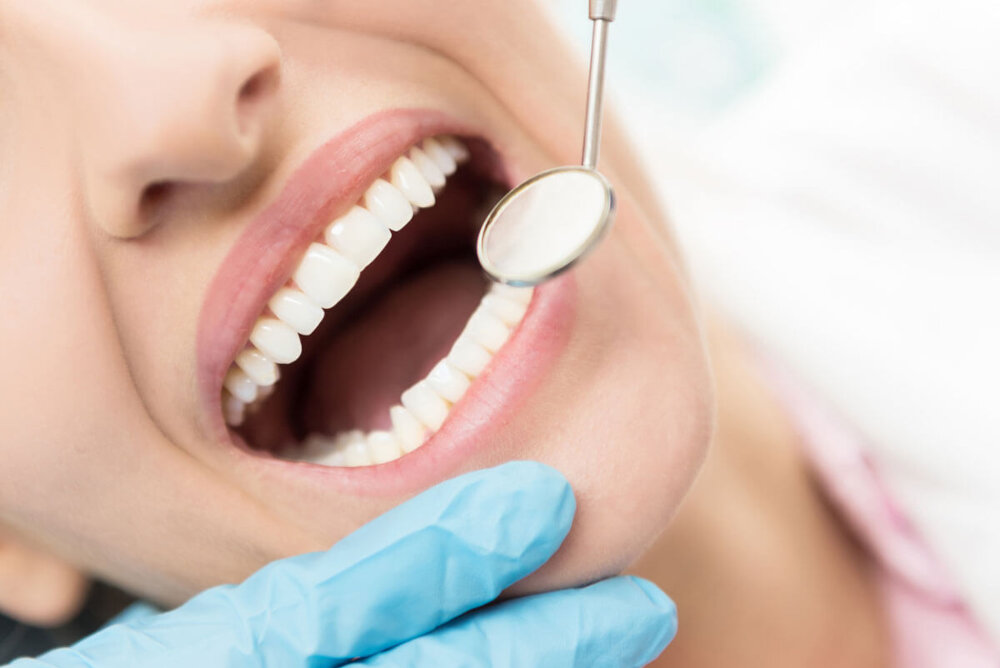
Maintaining good dental health is crucial for overall health and well-being. Brushing your teeth twice a day is a fundamental step in maintaining good dental hygiene. It is recommended to use a fluoride toothpaste and to brush for at least two minutes each time. Brushing should be done in a circular motion, focusing on each tooth, and paying extra attention to the gum line. Flossing at least once a day is also essential for removing plaque and food particles from between teeth. It’s important to replace your toothbrush regularly, every three to four months, or sooner if the bristles become frayed. Additionally, it’s important to visit your dentist every six months for a check-up and cleaning. In addition to brushing and flossing, it’s important to maintain a healthy diet for good dental health. Limiting sugary and acidic foods and drinks can help prevent tooth decay and erosion. Drinking fluoridated water can also help strengthen teeth and prevent cavities. Chewing sugarless gum after meals can stimulate saliva production, which can help neutralize acid and prevent tooth decay. Finally, quitting smoking or using tobacco products is crucial for good dental health, as tobacco use can cause tooth discoloration, gum disease, and oral cancer. By following these tips, you can maintain good dental health and prevent dental problems from occurring in the future.
In addition to brushing and waiting before eating, there are other practices that can promote good dental health. Flossing daily helps remove plaque and food particles from between teeth, preventing cavities and gum disease. Using mouthwash can also help kill bacteria and freshen breath. Eating a balanced diet with plenty of fruits, vegetables, and calcium-rich foods can strengthen teeth and prevent decay. Avoiding sugary and acidic foods and drinks can also help prevent tooth decay and erosion. Regular dental check-ups and cleanings are essential for maintaining good dental health and catching any potential issues early on. Incorporating these practices into your dental hygiene routine can lead to a healthier mouth and a brighter smile.
Maintaining healthy teeth and gums is essential for overall health and well-being. Brushing your teeth twice a day with fluoride toothpaste, flossing daily, and using mouthwash can help prevent tooth decay and gum disease. Additionally, eating a balanced diet that is low in sugar and high in calcium and vitamin D can help keep your teeth and gums healthy. Avoiding tobacco products and limiting alcohol consumption can also reduce your risk of oral cancer and other oral health problems. Regular dental check-ups and cleanings are also important for detecting and treating any issues early on. By following these tips, you can help ensure that your teeth and gums remain healthy and strong for years to come.
Brushing teeth is an essential part of oral hygiene as it helps remove plaque, bacteria, and food particles that can cause tooth decay, gum disease, and bad breath. Regular brushing with fluoride toothpaste can strengthen the enamel, protect the teeth from cavities, and promote overall dental health. Neglecting to brush regularly can lead to a buildup of harmful bacteria, which can eventually cause tooth decay and gum disease. Therefore, it is recommended to brush teeth at least twice a day for two minutes each time, using a soft-bristled toothbrush and a fluoride toothpaste. By following these simple steps, you can maintain healthy teeth and a bright smile for years to come.
The waiting time before eating after brushing is a topic of debate among dental professionals, with many advocating for a minimum of 30 minutes to allow the fluoride in toothpaste to fully absorb into the teeth. However, recent studies have suggested that waiting only 10-20 minutes may be sufficient. It is important to note that consuming acidic or sugary foods immediately after brushing can erode tooth enamel, so it is best to wait a bit before indulging in breakfast or a snack. Ultimately, the waiting time will depend on individual factors such as oral health and diet, and it is recommended to consult with a dentist to determine the best practices for your specific needs.
Maintaining good dental health is crucial for overall health and well-being. It is essential to brush your teeth at least twice a day, floss daily, and visit the dentist regularly to prevent dental problems like gum disease, cavities, and bad breath. It is also important to avoid sugary and acidic foods and drinks, which can erode tooth enamel and lead to tooth decay. In addition to following a good oral hygiene routine, it is essential to adopt healthy lifestyle habits like quitting smoking, eating a balanced diet, and managing stress. By taking care of your teeth and gums, you can ensure a healthy smile and a healthier you. So, it is worth the effort to invest in good dental care.
Conclusion
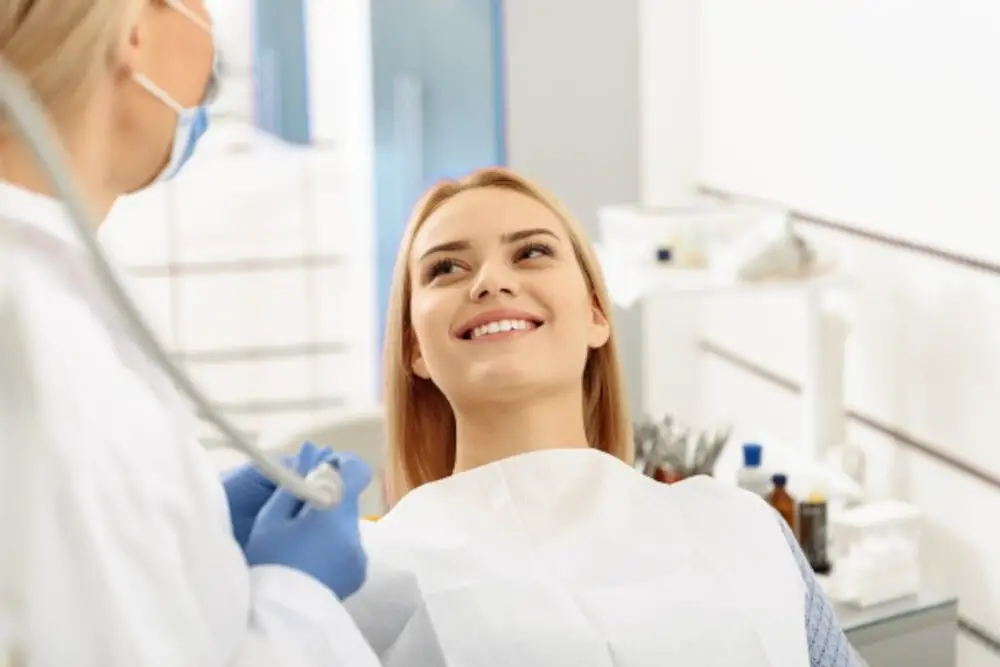
In conclusion, the question of how long one should wait before eating after brushing their teeth is a matter of dental hygiene and personal preference. While it is recommended to wait at least 30 minutes before consuming food or drinks, some individuals may choose to wait longer or rinse their mouth with water before eating. It is important to consider the effects of certain foods and drinks on the enamel of the teeth and to maintain a consistent oral hygiene routine. Ultimately, taking good care of one’s teeth and gums is essential for overall health and wellbeing.
